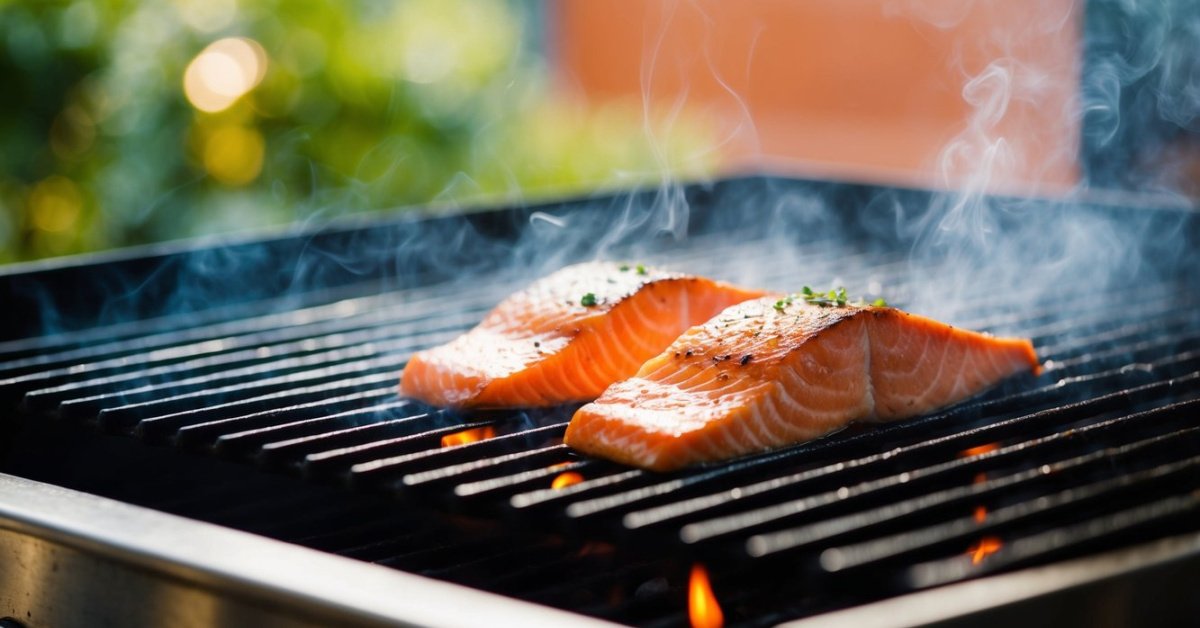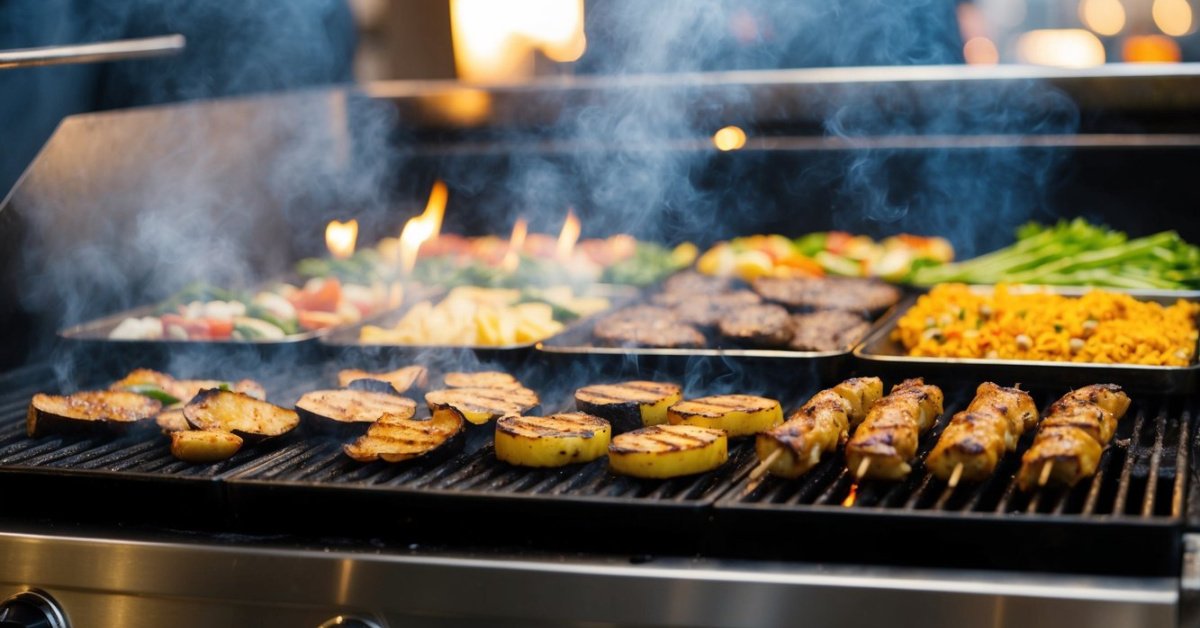When it comes to outdoor cooking, grilling is an all-time favorite. However, choosing the right type of grill can be a daunting task. Two of the most popular types of grills are pellet and gas grills. Both have their own unique features, advantages, and disadvantages. In this article, we will compare and contrast these two types of grills to help you make an informed decision.

Pellet grills use wood pellets as fuel, while gas grills use propane or natural gas. Pellet grills are known for their ability to infuse food with a smoky flavor, while gas grills are known for their convenience and ease of use. Pellet grills are also versatile, allowing you to smoke, grill, bake, roast, and even braise your food. On the other hand, gas grills heat up quickly and provide a consistent temperature, making them perfect for searing and cooking at high temperatures. In this article, we will delve deeper into the differences between pellet and gas grills and help you determine which one is right for you.
Pellet Grills vs Gas Grills
When it comes to outdoor cooking, two popular options are pellet grills and gas grills. Both types of grills have their advantages and disadvantages, and choosing the right one for you depends on your personal preferences and cooking needs.
Pellet grills use compressed sawdust pellets as fuel, which are fed into a fire pot by an auger. The pellets are ignited by a hot rod, and a fan helps to combust the smoke, producing a smoky flavor. Pellet grills are versatile and can be used for grilling, smoking, roasting, and baking. They offer precise temperature control and can maintain a consistent temperature for long periods of time, making them ideal for low and slow cooking. Pellets are available in a variety of wood flavors, such as hickory and cherry, which can add a unique taste to your food. However, pellet grills require electricity to power the fan and auger, and they can be more expensive than gas grills. The pellets also need to be stored in a dry place to prevent them from getting damp.
Gas grills, on the other hand, use propane or natural gas as fuel and have burners that produce heat. They are quick to heat up and can reach high temperatures, making them ideal for searing. Gas grills are also user-friendly and easy to use, and they require minimal maintenance. They are available in a range of sizes and prices, making them affordable for most people. However, gas grills do not produce the same smoky flavor as pellet grills, and they can be less versatile. Additionally, you need to have a supply of propane or natural gas on hand, and the tanks need to be refilled or exchanged when they run out.
In terms of temperature control, pellet grills offer more precise control and can maintain a consistent temperature for long periods of time. Gas grills, on the other hand, can reach higher temperatures and are better for quick cooking. Pellet grills are also more expensive than gas grills, but they offer a wider range of cooking options and produce a unique smoky flavor.
Overall, the choice between a pellet grill and a gas grill comes down to personal preference and cooking needs. If you want precise temperature control and the ability to smoke, grill, roast, and bake, a pellet grill may be the better option. If you want quick cooking and high temperatures for searing, a gas grill may be the better choice.
Pellet Grills
What are Pellet Grills?
Pellet grills are outdoor cooking devices that use wood pellets as fuel. These pellets are made from compressed sawdust and come in a variety of flavors, such as hickory, cherry, and mesquite. Pellet grills are often used for smoking, but they can also be used for grilling, baking, and roasting.
How do Pellet Grills Work?
Pellet grills use electricity to power a fan and an auger that moves the pellets from the hopper to the fire pot. The fire pot then ignites the pellets, creating heat and smoke. The temperature is controlled by adjusting the rate at which the pellets are fed into the fire pot. This allows for precise temperature control, making it easy to cook low and slow or at high heat.
Advantages of Pellet Grills
One of the main advantages of pellet grills is the ease of use. They are user-friendly and have digital controllers that allow for easy temperature control. Pellet grills also produce a smoky flavor that is similar to that of a smoker, but with the convenience of a grill. They are also versatile and can be used for a variety of cooking styles.
Disadvantages of Pellet Grills
Pellet grills can be expensive compared to other types of grills. They also require electricity to operate, which can be a concern for outdoor cooking. The wood pellets used as fuel can also be costly, and the hopper needs to be refilled regularly. Pellet grills also require more maintenance and cleaning than other types of grills due to the ash produced by the burning pellets.
In summary, pellet grills are a versatile outdoor cooking device that produces a smoky flavor similar to that of a smoker. They are easy to use and offer precise temperature control, but can be expensive and require more maintenance and cleaning than other types of grills.
Gas Grills
Gas grills are a popular type of grill that uses either propane or natural gas as a fuel source. They are versatile, convenient, and can reach high temperatures quickly. In this section, we’ll take a closer look at what gas grills are, how they work, their advantages, and disadvantages.
What are Gas Grills?
Gas grills are outdoor cooking appliances that use propane or natural gas as a fuel source. They typically have one or more burners that heat up a cooking chamber where food is placed. Gas grills come in various sizes, shapes, and designs, and can be used for a variety of cooking styles, from grilling steaks to baking pizzas.
How do Gas Grills Work?
Gas grills work by igniting propane or natural gas to heat up the burners, which then heat up the cooking chamber. The temperature range of gas grills can be adjusted by turning the knobs that control the amount of gas that flows to the burners. Some gas grills also have additional features like flavorizer bars or an oven for baking.
Advantages of Gas Grills
One of the main advantages of gas grills is their convenience. They are easy to start and can reach high temperatures quickly, making them ideal for busy weeknights or impromptu gatherings. Gas grills are also easy to clean up, as they don’t produce as much ash or require as much cleaning as charcoal grills. Additionally, gas grills can come with a variety of accessories, such as side burners or rotisserie kits, to enhance the cooking experience.
Disadvantages of Gas Grills
One of the main disadvantages of gas grills is that they may not provide the same smoky flavor as charcoal or pellet grills. Additionally, some people may have safety concerns about using propane or natural gas as a fuel source. Finally, gas grills may not be suitable for all types of cooking, such as smoking ribs or slow-cooking meat.
In conclusion, gas grills are a popular and versatile option for outdoor cooking. While they may not provide the same smoky flavor as other grill types, they offer convenience, high temperatures, and easy clean-up. When choosing a gas grill, it’s important to consider factors such as the power source, cooking chamber size, and personal preferences. Researching different manufacturers and grill types can also help you find the perfect gas grill for your needs.














